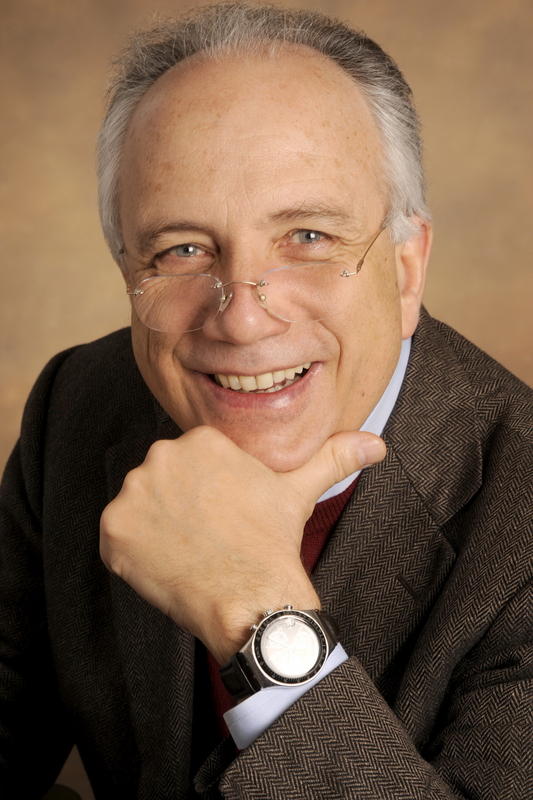 The first time I was elected as a member of the IPSA Executive Committee (EC) was in 1988 in Washington and Serge Hurtig was already an authoritative leader of the organization. Due to chance and necessity I was again elected in the EC in 2003 at the World Congress in Durban and Serge was still there in his prominent role. Serge joined IPSA about sixty years ago, in the mid-1950s when he was very young. He became Secretary General for six years (1960-67), later the vice-President for six years (1979-85), organized the two World Congresses held in Paris (1961 and 1985), and started editing the main IPSA publication, the International Political Science Abstracts, in 1963 and has been doing it until now.
The first time I was elected as a member of the IPSA Executive Committee (EC) was in 1988 in Washington and Serge Hurtig was already an authoritative leader of the organization. Due to chance and necessity I was again elected in the EC in 2003 at the World Congress in Durban and Serge was still there in his prominent role. Serge joined IPSA about sixty years ago, in the mid-1950s when he was very young. He became Secretary General for six years (1960-67), later the vice-President for six years (1979-85), organized the two World Congresses held in Paris (1961 and 1985), and started editing the main IPSA publication, the International Political Science Abstracts, in 1963 and has been doing it until now.
If we try to look behind these simple data, three aspects emerge, that I will present and briefly comment: in the years Serge became the living, long-term memory of IPSA; he was the editor of the main IPSA publication for almost fifty years; he did that with a great, unparalleled generosity.
The living memory
All organizations where there is a fairly frequent turnover need a memory. If the organization is international this implies an even stronger need for it as the occasions of meeting are few but always very relevant. At the same time, it is necessary to know what were the decisions made, the debates, the commitmentsin order to develop any policy.Of course, this means minutes of the meetings, records of rules and procedures, several other kinds of documents, and the building of archives with all other electronic or necessary means of storage. To keep track of its own identity and memory, and following an initiative of the present Secretary General, Guy Lachapelle, IPSA also published its own history on the occasion of the sixty years of the foundation in 1949.
Memory, however, is much more than electronic documents, and Serge strongly and vividly showed this to all of us when participating to all meetings of Executive Committee. With astonishing detail and precision Serge was always able to give the full background of every topic we were debating in addition to provide sensitive and wise indications on what was realistic or not. He never tried to impose his own view, but always showed the alternatives and the most practical paths that were possible to undertake. I’m sure that since the 1960s, that is, for half a century, Serge was a point of reference for every President, someone to listen to before making every important decision.
The editor of the International Political Science Abstracts
The International Political Science Abstracts was the other essential task he has been performing for IPSA. With the support of the Fondation Nationale des Sciences Politiques in Paris, he has always been able to keep editing, again for half a century, a publication grounded on a simple, but effective and viable idea that even today is relevant despite the fact that internet now provides a wealth of bibliographical sources.
The Abstracts are a journal that publishes “non-evaluative abstracts of articles in the field of political science published in journals (and yearbooks) all over the world”. The International Political Science Abstracts Database contained over 272,000 abstracts as of 2009, with information dating from its inception in 1951. But finding those abstract or preparing them is not an easy task: organization, scrupulous care and continuous attention are necessary for getting the results expected, and Serge is still the co-editor after handing this position to the colleague who mostly helped him and us in this enterprise, Paul Godt.
The habit of searching onto the Abstracts when starting to work on a new subject has become a new one for junior or senior scholars, and always with the same expectations of finding exhaustive bibliographical results without the possibility of disappointment due to a poor gathering of data.
Generosity
In times where everyone is running and is constantly focused on his own will of building a more and more gigantic ego, to know someone who does such a significant work only meets by a strong will of commitment to a common intellectual enterprise is a rare occurrence. In the domain of political science, the fact is even rarer. If not for other reasons, we should pay our highest tribute to someone who has been doing this for more than half a century, without looking for his own personal rewards. I hope that Serge will find his in the awareness of always having accomplished what he thought was his duty.
For all these reasons today we would like to express our deepest gratitude of all IPSA members, officers, leaders to Serge Hurtig, who was of great help leading IPSA without never saying it.
Leonardo Morlino
LUISS - GUIDO CARLI
IPSA President 2009-2012











